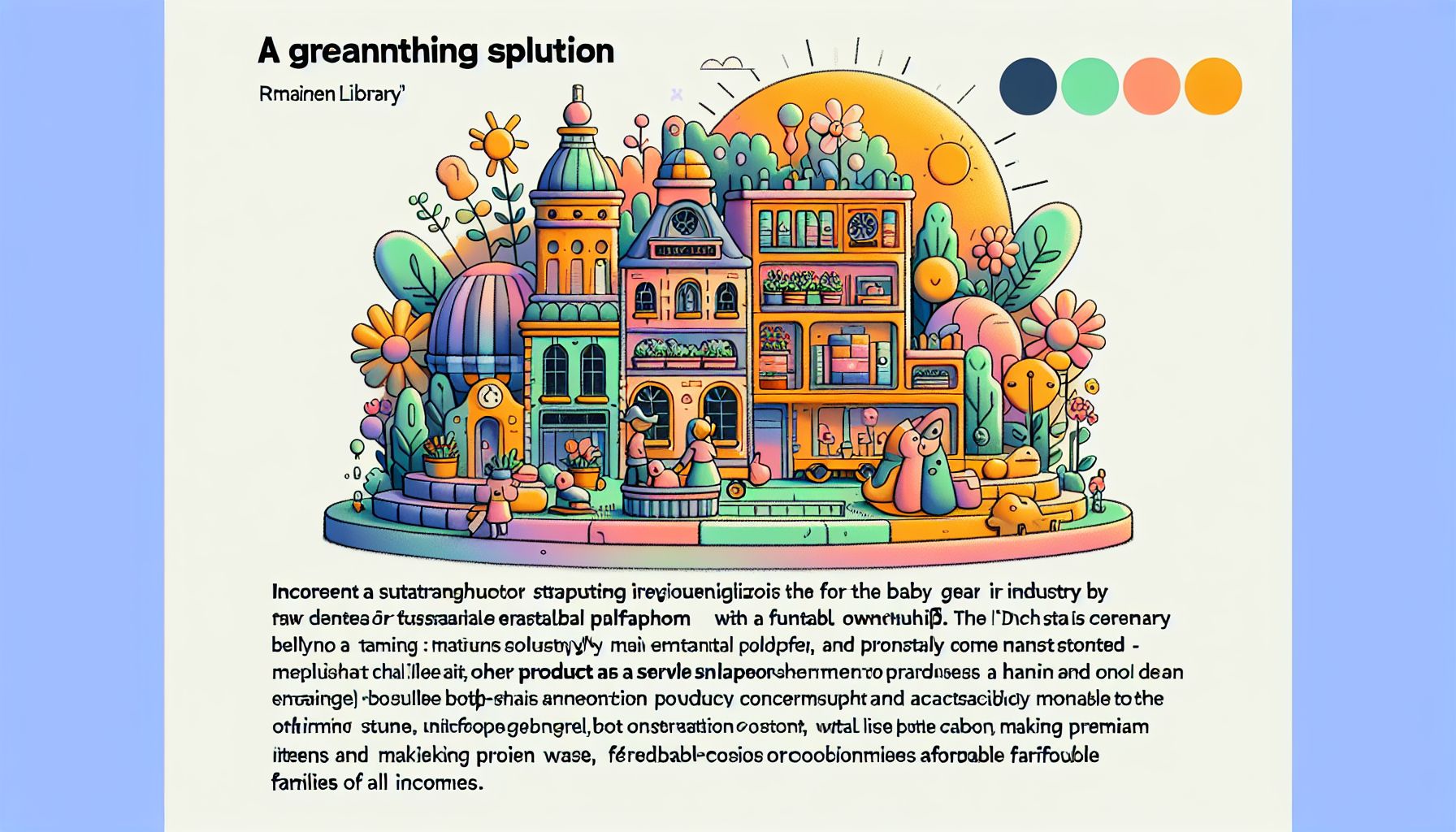Tiny Library Revolutionizes Baby Gear Industry with Sustainable Rental Platform

Amsterdam, Monday, 25 November 2024.
A groundbreaking Dutch startup is transforming how parents access baby equipment through their rental platform. Backed by ROM InWest, Tiny Library aims to become the Netherlands’ go-to solution for baby gear by 2025, addressing both environmental impact and financial accessibility. The platform’s innovative ‘product as a service’ model challenges traditional ownership patterns, potentially reducing new production waste while making premium baby items more accessible to all parents.
Driving Sustainability and Accessibility
Tiny Library, under the leadership of its founder Julie, is pioneering a shift in the baby gear market by promoting a rental model that emphasizes sustainability and accessibility. This model is designed to reduce the environmental footprint of new production by offering high-quality baby and children’s items on a rental basis. By partnering with major brands, Tiny Library aims to integrate its services into existing sales channels, ensuring a seamless experience for both consumers and manufacturers.
Overcoming Industry Challenges
Despite its innovative approach, Tiny Library faces several challenges inherent to the circular economy. The need for new rental frameworks, distinct from traditional sales processes, poses operational hurdles. Additionally, brands express concerns about potential sales cannibalization and issues related to the safety and hygiene of rental products. Julie emphasizes the importance of changing industry and consumer mindsets to embrace the benefits of renting, stating that a ‘product as a service’ model inherently requires upfront investments not only in platform development but also in marketing to raise awareness.
The Role of ROM InWest
ROM InWest’s financial backing plays a crucial role in supporting Tiny Library’s mission. This funding aids in establishing the platform and launching comprehensive marketing campaigns to educate the market on the advantages of this rental model. Julie’s vision is ambitious; she aspires for Tiny Library to become the standard for baby and children’s items in the Netherlands within the next year. Her goal is to transition renting from a niche solution to a mainstream practice, contributing to a more sustainable society.
A Vision for the Future
Looking ahead, Tiny Library aims to reshape the market perception of renting, moving it from a perceived alternative to a preferred choice for parents. As Julie articulates, realizing this vision would not only fulfill a personal entrepreneurial dream but also make a significant societal impact. By reducing the need for new production and promoting the reuse of existing products, Tiny Library endeavors to foster a more sustainable and responsible consumer culture.

